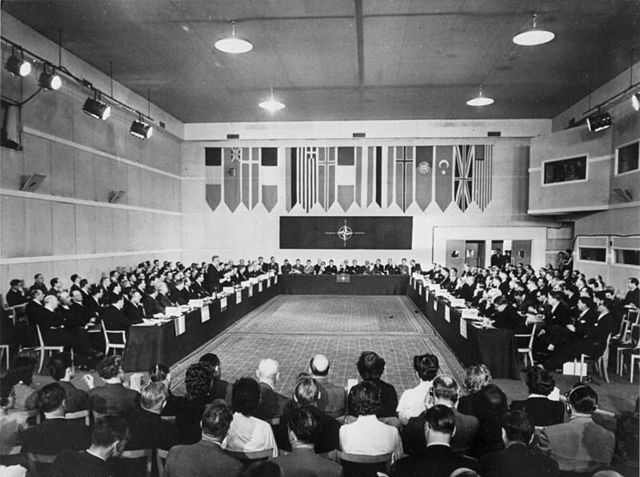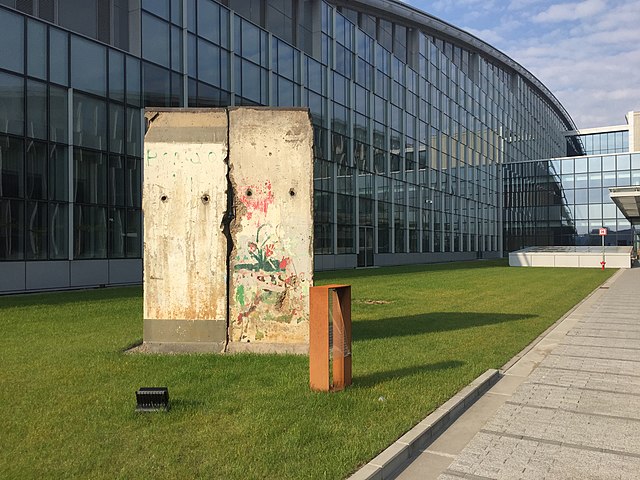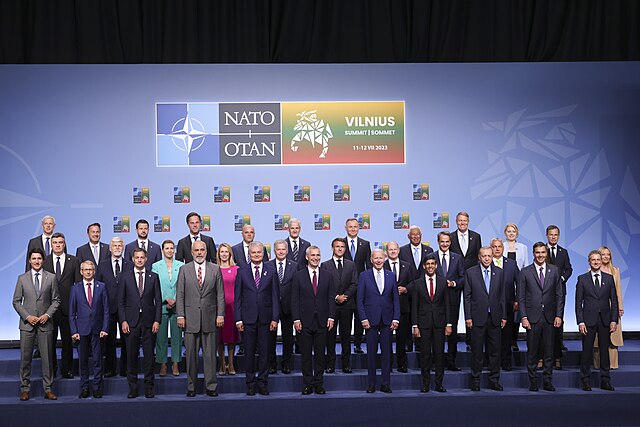Euro-Atlantic Partnership Council
The Euro-Atlantic Partnership Council (EAPC) is a post–Cold War, North Atlantic Treaty Organization (NATO) institution. The EAPC is a multilateral forum created to improve relations between NATO and non-NATO countries in Europe and Central Asia. States meet to cooperate and discuss political and security issues. It was formed on 29 May 1997 at a Ministers’ meeting held in Sintra, Portugal, as the successor to the North Atlantic Cooperation Council (NACC), which was created in 1991.
EAPC logo
Meeting at NATO Headquarters, on Jan. 16th, 2018, of Military Chiefs of Defense from the EAPC, PfP, NATO, Major Non-NATO Allies, NATO's Mediterranean Dialogue, Istanbul Cooperation Initiative, and NATO Partners.
The North Atlantic Treaty Organization, also called the North Atlantic Alliance, is an intergovernmental military alliance of 32 member states—30 European and 2 North American. Established in the aftermath of World War II, the organization implements the North Atlantic Treaty, signed in Washington, D.C., on 4 April 1949. NATO is a collective security system: its independent member states agree to defend each other against attacks by third parties. During the Cold War, NATO operated as a check on the threat posed by the Soviet Union. The alliance remained in place after the dissolution of the Soviet Union and the Warsaw Pact, and has been involved in military operations in the Balkans, the Middle East, South Asia and Africa. The organization's motto is animus in consulendo liber. The organization's strategic concepts include deterrence.
West Germany joined NATO in 1955, which led to the formation of the rival Warsaw Pact during the Cold War.
The Fall of the Berlin Wall in 1989 marked a turning point in NATO's role in Europe, and this section of the wall is now displayed outside NATO headquarters.
Family photo of the 2023 Vilnius summit.
A USAF aircraft landing during Operation Deliberate Force after the Srebrenica massacre






